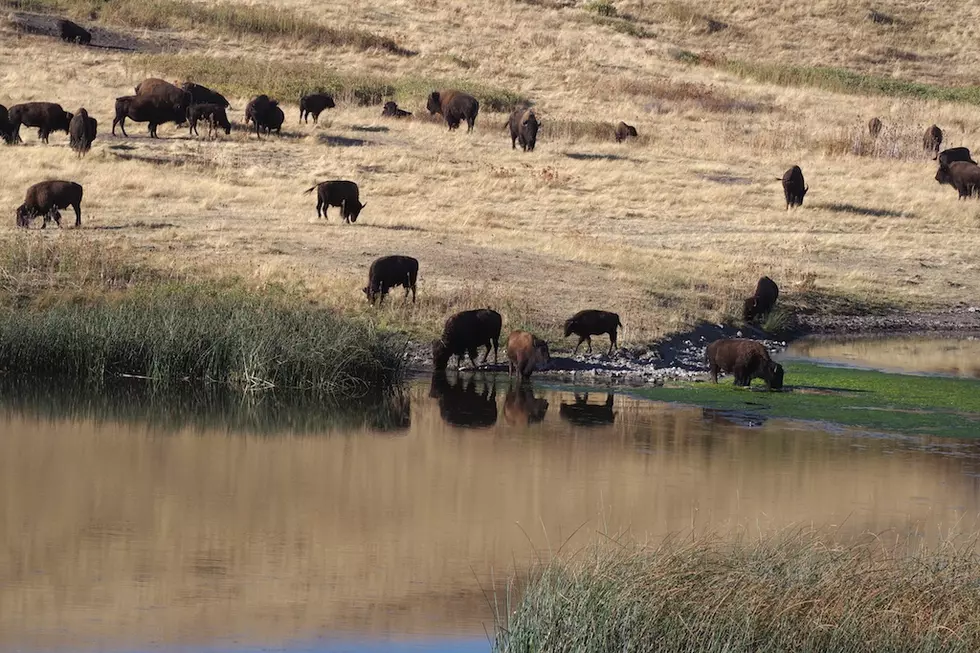
To the ire of Montana cattlemen, BLM approves American Prairie bison grazing plan
HELENA (KPAX) - The U.S. Bureau of Land Management has made its official decision in favor of allowing expanded bison grazing on public land in north-central Montana – but it’s not putting an end to the long-running battle over the proposal.
American Prairie — a nonprofit formerly called American Prairie Reserve — proposed bison grazing on 63,065 acres of BLM land in Phillips County, south of Malta. The BLM’s decision, issued Thursday, would allow bison, behind fences, on six of the seven areas the organization proposed. It follows the proposed decision the agency initially released in March.
“After four years of comprehensive analysis and public comment, we are extremely pleased the BLM has approved this grazing application,” said American Prairie CEO Alison Fox in a statement. “This decision is grounded in sound science, complies with all local, state, and federal laws, and recognizes the important ways bison grazing has and will continue to improve rangeland health.”
The decision would allow bison to graze seasonally in three locations and year-round in three others — including two that are already approved for bison. The seventh location would remain open only to cattle.
In the decision, BLM leaders said their action was justified by an analysis that showed the plan wouldn’t have a significant environmental impact. They also identified some potential benefits for wildlife habitat and vegetation, including the removal of some internal fencing and the different grazing patterns of bison allowing for more diversity.
American Prairie says they plan to increase their bison herd from around 800 animals to 1,000 by 2025. They say allowing bison grazing would benefit wildlife, water quality, and rangeland conditions.
However, American Prairie’s plans have drawn opposition from some ranchers, landowners, and groups like the Montana Stockgrowers Association. They questioned the BLM’s authority to lease land for grazing bison, as opposed to traditional livestock.
They also raised concerns about the impacts of having bison in close proximity to cattle, from possible interbreeding to injuries if the animals end up in the same pasture. In addition, they argued the agency hadn’t fully analyzed the possible economic impacts to the livestock industry.
“To say we are disappointed with the final decision would be an understatement,” said Montana Stockgrowers Association president Jim Steinbeisser in a statement. “Ranchers have worked diligently for over a century caring for the public land livestock graze. Ranchers are held to the highest standards by federal land agencies in the areas of range management, range monitoring, range improvements, and processes within the BLM’s grazing regulations, yet when concerns were raised regarding these areas in comments and protests, BLM did not acknowledge these concerns.”
Gov. Greg Gianforte, U.S. Sen. Steve Daines, and Montana Attorney General Austin Knudsen each released statements criticizing the BLM’s decision and accusing the agency of disregarding the public.
“This is yet another example of the Biden administration ignoring local input from Montana ranchers—it’s completely unreasonable,” said Daines. “At a time when our farmers and ranchers are facing unprecedented challenges, we should be listening to our Montana farmers and ranchers not pushing them to the side.”
“As we review this decision, we share Montanans' frustration with the BLM's woeful and repeated failures to properly engage Montanans and act within the bounds of its authority on this issue,” Gianforte said. “The agency limited public comment to a single, virtual event in the middle of haying season, ignored repeated requests from state officials for full public engagement, and failed to analyze the full range of impacts of its proposal, which it lacks the statutory authority to enact. The State will consider next steps after a thorough review of BLM's decision.”
The Montana Stockgrowers Association said they are already working with the Phillips County Stockgrowers Association “to coordinate an effort moving forward” after the decision.
People who believe their interests are adversely affected by the decision have 30 days to file an appeal.
American Prairie first submitted a plan for bison grazing in 2017. They scaled it back significantly in 2019, saying they wanted to address public concerns and have more time to demonstrate how their grazing system works.
The organization says their grazing plan is in line with federal, state and local laws, and they say they've worked on a disease management agreement with Phillips County officials.
“The health of our herd is just as important to us as the health of the agricultural communities of Montana,” said vice president and chief external relations officer Pete Geddes. “We look forward to collaborating with Phillips County to uphold our robust disease management agreement.”
